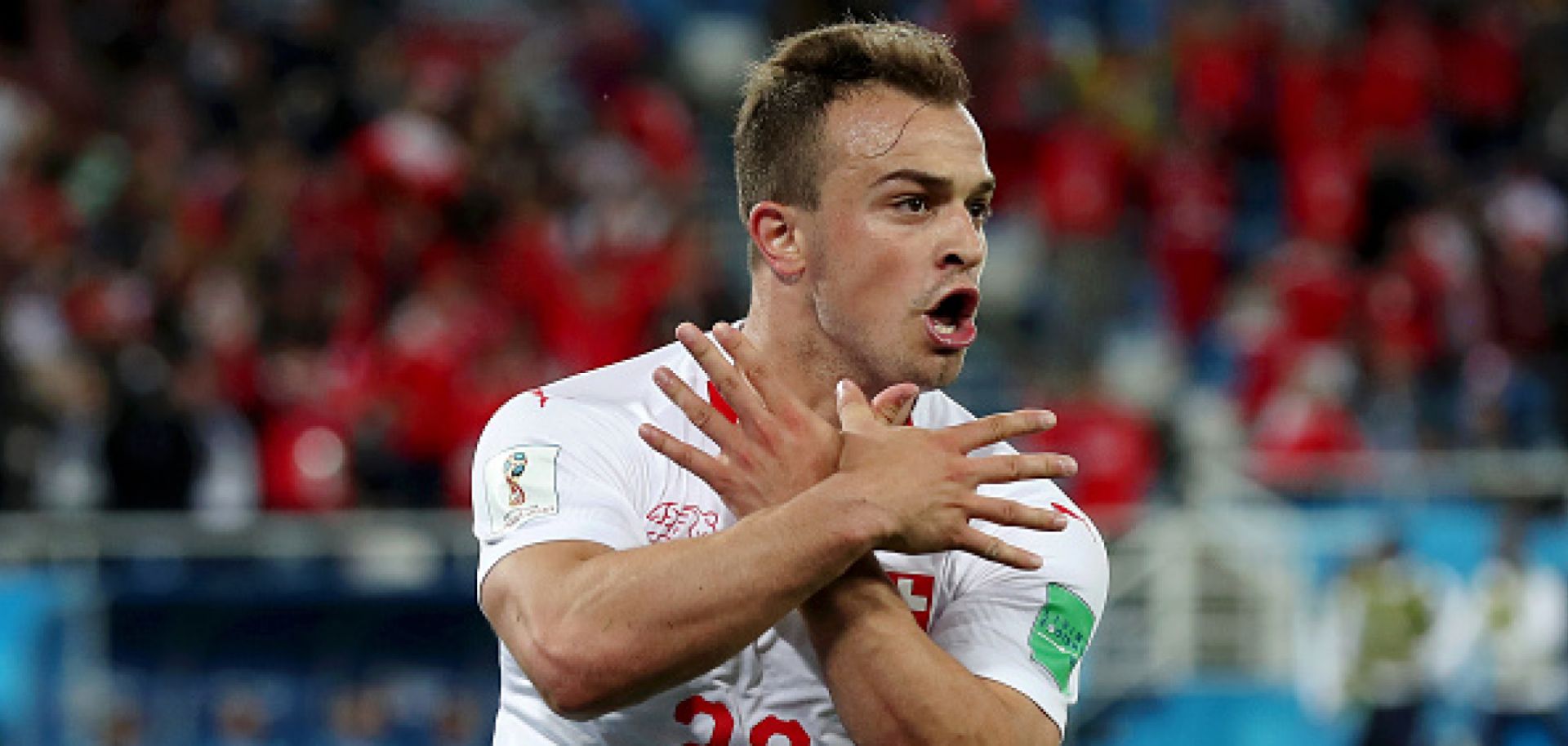GLOBAL PERSPECTIVES
The Balkan Wars Revisited at the World Cup

Jul 9, 2018 | 10:00 GMT

Swiss player Xherdan Shaqiri's celebration after scoring a World Cup goal against Serbia included flashing the Albanian eagle. Shaqiri was born in Kosovo, whose ethnic Albanian population fought a destructive conflict with Serbia in the 1990s.
(CLIVE ROSE/Getty Images)
Highlights
- The World Cup brings national sentiments to the fore among even casual fans, especially in countries whose teams have qualified for the tournament.
- Switzerland is home to thousands of Albanian refugees who fled the former Yugoslavia during its brutal and devastating conflicts two decades ago.
- The politics of the Balkans' lingering ethnic tensions manifested on and off the pitch in the Swiss match against Serbia.
Subscribe Now
SubscribeAlready have an account?
